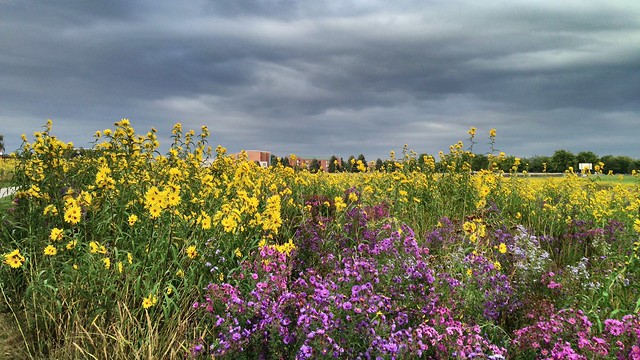My buddy and co-conspirator, Matt, texted me first thing this morning: "Happy PodDay, brother!"
Today is the day...after weeks of dreaming, scheming, recording, and a whole lot of laughing have come together into this thing: we are launching our podcast today.
"Hallway Conversations with Matt and Dave" is what we decided to call it. The whole thing grew out of the way our relationship came together: we often wound up having conversations in the hallway outside of our offices. Matt is my newest colleague in our Education department, but we've known each other--or maybe known of each other?--for years. We have many mutual friends in education, so I felt like I knew Matt even before he moved to town. But it's been so, so good to get to know him in a more personal and personable way.
And after so many hallway conversations...one time one of us said, "We should really record these and turn them into a podcast."
And so we did.
Our basic plan is that each episode will be a 20-minute unscripted conversation around a theme. (20 minutes because teachers' time is precious, and we certainly don't want them to feel like they are wasting it with us!) While we have agreed on some topics ahead of time, each conversation will be driven by a question related to the theme of the episode that one of us will bring without telling the other ahead of time, and then we will think on our feet as we try to come to an answer to that question--just like we do in our "real" hallway conversations.
It's a little terrifying to step up to the microphone and record an episode this way, but it's also been a lot of fun, and some really good professional development for both of us, I think.
And, honestly, it's a little terrifying, launching this out into the world.
Will anyone listen? Will anyone care?
Early on in the recording process we joked that if the only people who listen are our wives (you know, to keep an eye on us...) we will be fine with that. The real intent for us was to further develop our own reflective practices, and build up our friendship at the same time.
But now, now that we're launching it out into the open...I'd be lying if I said that I don't care if people listen. I hope that people listen, and that the things we are talking about in our "hallway conversations" will spark some more hallway conversations among the Christian educators who might listen in, that they might start having these same kinds of professional discussions with thoughtful colleagues in their own school hallways.
Anyway, if you're up for giving us a listen, you can find our podcast on Apple Podcasts, Google Podcasts, and Spotify. Just search for "hallway conversations with Matt and Dave" and you'll find us. Or, you can access the show via the web right here: http://hallwayconvos.podbean.com/ We would love for you to listen in, and to share your thoughts in response.
(So...if I'm not writing as often here on the blog...it's probably because we're recording and editing some new episodes. That was definitely the case in January!)
Happy PodDay!












